7 Worst Daily Habits for Your Joints as You Age
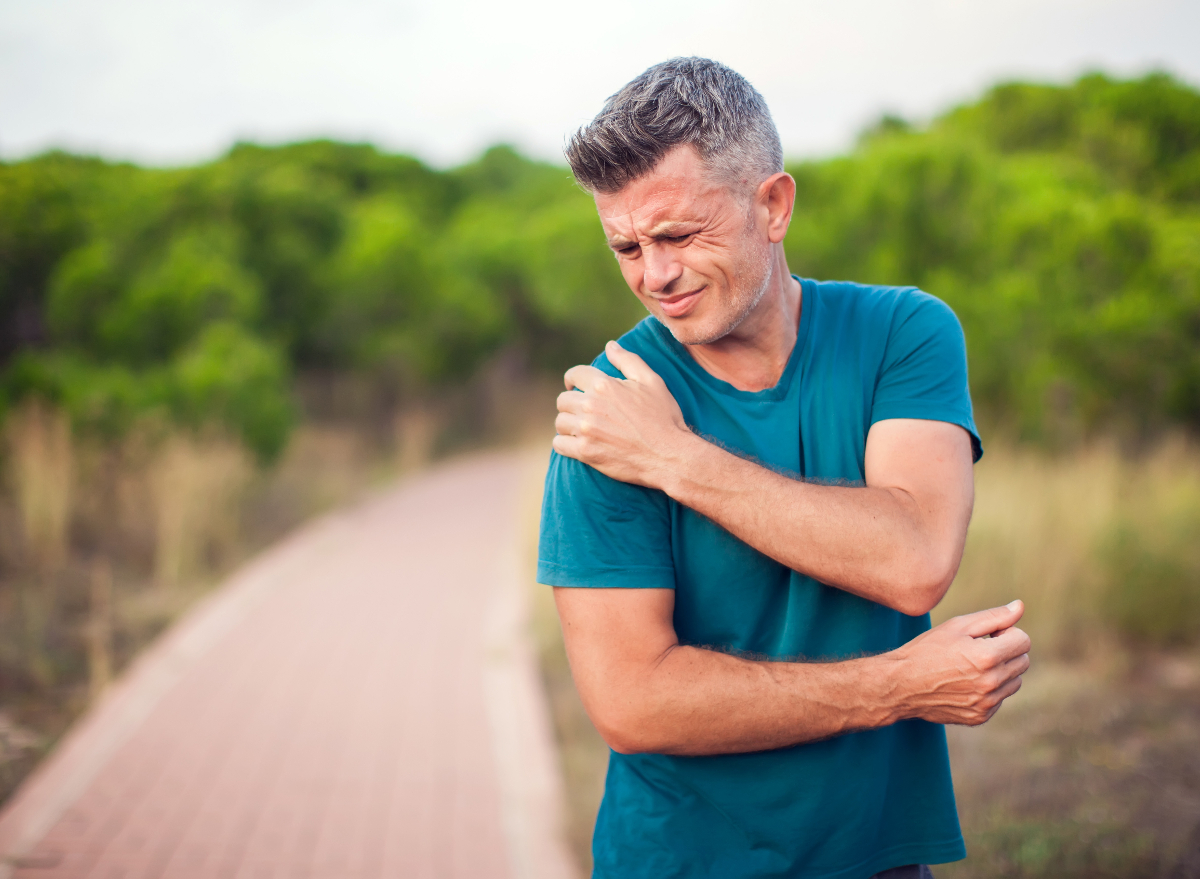
Changes in your body are the name of the game as you get older, and one area that can be particularly affected is your joints. The wear and tear on your joints over time can cause various health issues, such as osteoarthritis—the most typical type of arthritis, according to the Centers for Disease Control and Prevention (CDC). While several factors can contribute to joint problems, some common daily habits may exacerbate the problem. Fortunately, awareness of them is the first step in boosting your joint health. To find out the worst daily habits for your joints as you age, we spoke with Rachel MacPherson, CPT, an ACE-certified personal trainer with Garage Gym Reviews, who reveals the scoop.
MacPherson shares seven bad habits to avoid that include everything from sitting too long to not drinking enough water. Each one can significantly impact your joint health. Understanding these habits and tweaking your daily routine can help protect your joints and reduce your risk of developing future joint problems. Read on to discover which seven daily habits you should avoid as you age to protect your joint health. And next, be sure to check out the 7 Fitness Habits That Are Destroying Your Body After 60.
You're sedentary too much.

A sedentary lifestyle can cause stiffness and weakness in the joints, Meier Orthopedic Sports Medicine explains. That's why standing up and moving around every hour or so is critical to keep your joints lubricated and healthy.
"Sitting for a large portion of your day without breaking up periods of inactivity with moving around on your feet can lead to some muscles becoming shortened and tight while others become stretched and weakened," MacPherson tells Eat This, Not That! "When this happens, you can experience muscular imbalances and strain on your joints as tissues pull and cannot support correct movement patterns. Try getting up and moving around every 30 to 60 minutes to combat this. Even short bouts of exercise to break up sitting can help prevent joint pain and other health concerns."
You're not drinking enough water.
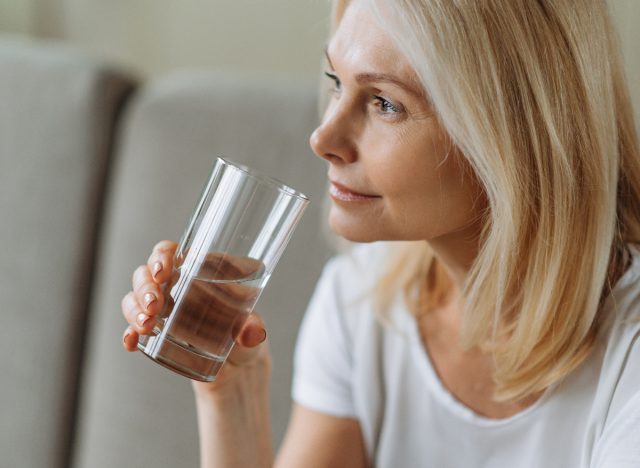
Dehydration can cause joint pain, according to Orthopedic Associates. However, the good news is staying hydrated by drinking enough water throughout the day can help prevent joint problems.
"Your joints have a lubricating fluid that helps them move smoothly and freely. When this fluid is not plentiful, you may end up with tightness, popping joints, and pain," explains MacPherson. "Drinking enough water throughout the day helps avoid this. Moreover, drinking enough water will improve cartilage lubrication and regrowth, which is also vital for healthy joints."
You have an improper work desk setup.
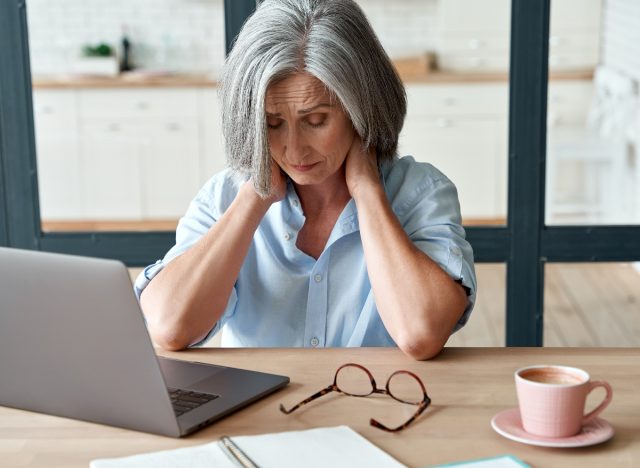
Bad posture while working at a desk can cause strain on the joints in your neck, shoulders, and back, report the experts at Spine-health.
"Sitting at a desk not set up with your ergonomics in mind can result in joint pain," cautions MacPherson. "To avoid this, ensure you can lift your wrists and not extend your arm in a way that leads to wrist or elbow pain. This can result in 'mouse arm syndrome.' An ergonomic mouse can help with this. A chair that is tall enough while still allowing your feet to rest on the floor is also key."
You're avoiding strength training.
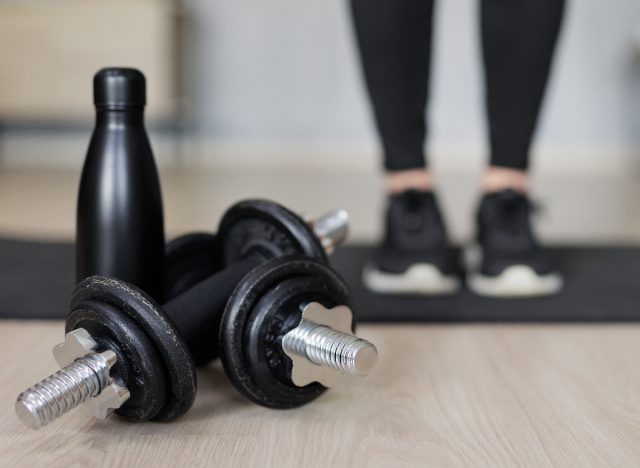
Strength training is crucial for maintaining joint health as we age. According to the National Institutes on Aging, strength training helps to build muscle mass and strength, supporting bone and joint health and reducing injury risk.
"Strength training improves joint health and can even help manage joint pain and diseases like osteoporosis," says MacPherson. "Performing strength training exercises at least two to three times per week is ideal as it will strengthen the muscles, bones, and tissues that support your joints so they will stay pain-free. In addition, muscle loss occurs as you age, and lifting weights can help prevent or mediate this effect, improving your functioning and joint health as you age."
You're overweight.
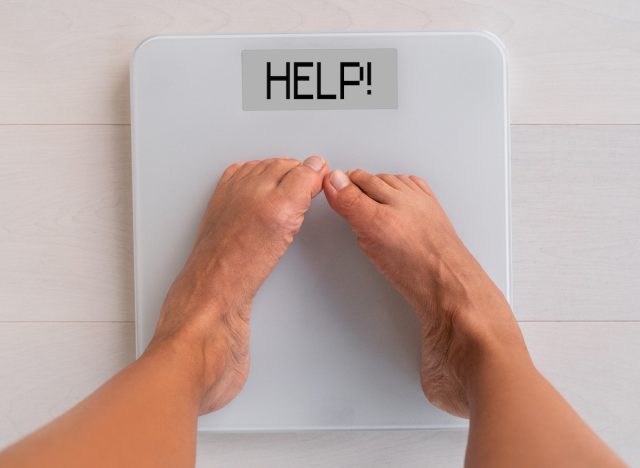
According to Johns Hopkins Arthritis Center, excess weight puts extra pressure on the joints, causing them to wear faster. However, maintaining a healthy weight through a balanced diet and exercise can help prevent joint damage over time.
"Having overweight or obese is a contributor to joint problems if you also don't have enough muscle mass to support your weight. In addition, the knees are especially susceptible to pain when you have excess weight to carry around," says MacPherson. "Your center of gravity becomes affected when you carry excess body fat, which changes how you walk. As well, overweight and obesity are associated with muscle loss and osteoporosis, which both harm your joints."
You're ignoring mobility work.
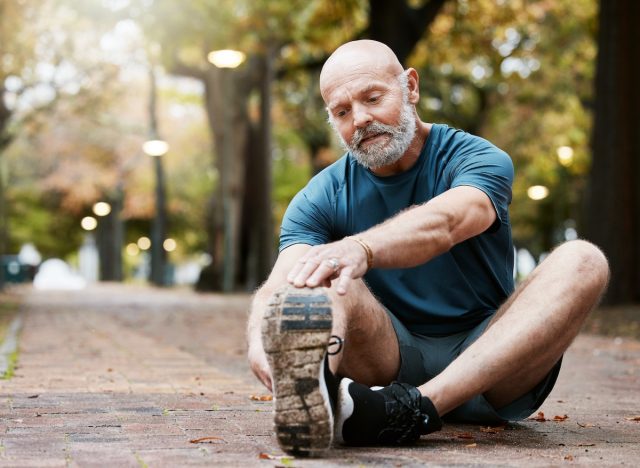
Mobility exercises help to keep your joints flexible and lubricated.
"While you may have been able to avoid warming up properly or working on your mobility when you were younger, the need for warming up becomes vital as you age. Otherwise, you could experience injuries, pain, tightness, and joint soreness. Warm-ups help prepare your central nervous system for the work ahead, allowing you to move better and more safely. They also increase blood flow, bringing nutrients to the muscles and tissues that support your joints," says MacPherson.
You're carrying items on one side of your body.
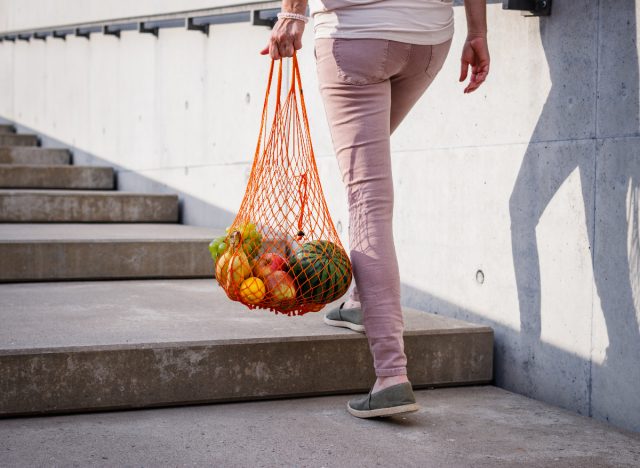
Carrying heavy bags, backpacks, or even shopping bags on one side of your body can cause imbalance and strain on your joints, caution the findings of a 2018 study. Fortunately, switching sides or using a backpack with two straps can help prevent joint problems.
"Improperly carrying heavy items (e.g., bags, purses, children) on one side of your body can lead to muscular imbalances, such as a lateral pelvic tilt or hip hike," says MacPherson. "Try not to hold bags or children on one side. Instead, use an ergonomic baby carrier that spreads the load on your back, ergonomic backpacks, or smaller, lighter, cross-body bags that you switch from side to side."
- Source: https://www.mosm.com/blog/sitting-smoking-sedentary-lifestyle-health/
- Source: https://orthopedicassociates.org/dehydration-and-joint-pain-how-your-hydration-is-affecting-joint-health/
- Source: https://www.nia.nih.gov/news/how-can-strength-training-build-healthier-bodies-we-age
- Source: https://www.hopkinsarthritis.org/patient-corner/disease-management/role-of-body-weight-in-osteoarthritis/
- Source: https://www.ncbi.nlm.nih.gov/pmc/articles/PMC6040247/









